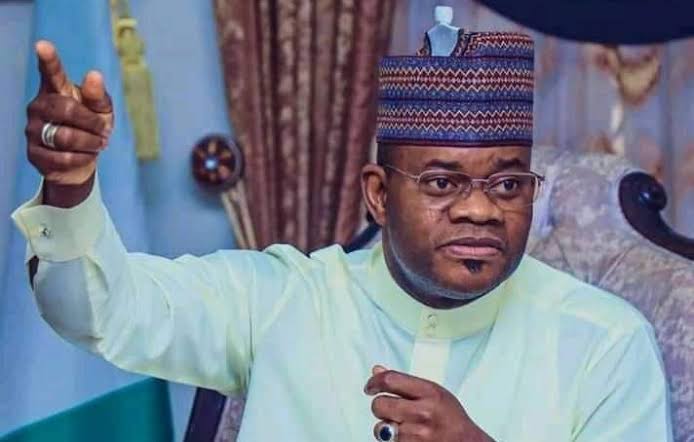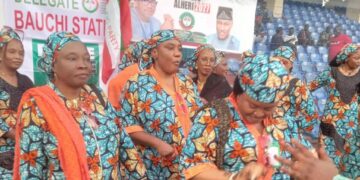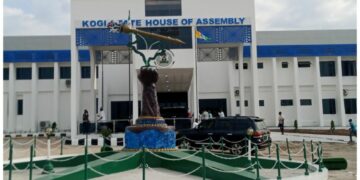Education remains an inaccessible right for millions of children around the world. More than 72 million children of primary education age are not in school and 759 million adults are illiterate and do not have the awareness necessary to improve both their living conditions and those of their children.
However, the citadel of learning in Kogi State has witnessed a revamp amid renewed and concerted efforts by the state government.
From the primary to tertiary education level, Kogi’s education sector has received a boost ending the tension that had ridden the sector in the past.
Before 2016, Kogi’s educational system was characterised by non-payment of salaries, decayed infrastructure, sticking teachers, shortage of teaching staff, irregular curriculum, and other factors that mitigate the educational development in the state.
Sometimes in 2014, teachers in Kogi State were on strike for over six months, leaving the students helpless and keeping them out of school as part of their complaints include non-payment of the new minimum wage, incessant screening of staff, irregular salaries, unpaid leave allowances, as well as promotion without cash backing, among others.
This hinders students’ ability to learn, reduces teachers’ productivity and consumes economic resources that could be better deployed elsewhere. The state of education in Kogi State at that time was in a state of coma.
The climax of the well-focused attention to making the Kogi state-owned higher institutions a shining example to other states has culminated into the hundred percent accreditation of courses offered in all state-owned higher institutions.
It is in realisation of this important role of education, that Kogi State governor Yahaya Bello set his priority right from the very beginning as to what he wanted to achieve for the people of Kogi State. Six years down the line this concerted effort of his administration has started bearing fruits.
However, the Kogi State government has been breaking new grounds, putting policies and programs in place, and building infrastructure to ensure that the state breaks free from the national disaster that education has become in Nigeria.
According to the Education Commissioner in Kogi State, Wemi Jones, the administration started its reforms by drawing a roadmap on short-term, medium-term, and long-term goals.
The governor, therefore, decided to make the operation systematic and methodical by ensuring that Kogi State has a fully enacted education law that became effective in the year 2020. As it is today, Kogi state is the only state in Northern Nigeria that operates with such a modern law because other Northern States in the country are still operating the colonial education law of 1964.
Currently, the Kogi State Government already has an idea of what the education system will look like in the state in the year 2030. There is a robust education plan that will guide the state from 2021-2030.
The commissioner said the governor has not only provided the needed funds to these tertiary institutions but has also provided the needed facilities and created conducive learning and teaching through a robust welfare package for both teaching and non-teaching staff.
It has become important to point out the laudable successes in the state educational system that cuts across all levels.
The governor ensured that all the 48 courses offered in the Kogi State University, Ayingba secured full accreditation from the Nigeria universities commission making it the first time since the establishment of the institution.
At a press conference to herald the sixth convocation of Prince Abubakar Audu University formerly known as Kogi State University, Ayingba, in January, the Vice Chancellor, Professor Mariyetu Tenuche, said all the 48 courses offered in the university have secured full accreditation from Nigeria Universities Commission, making it the first time since the establishment of the institution.
Aside from this feat of a hundred per cent accreditation of all courses, the institution also emerged 25th out of the 170 public and private universities in Nigeria that have full accreditation for all courses offered.
The state-owned polytechnic in Lokoja also shared the joy of full accreditation of all courses offered at the institution as it achieved 100 per cent success in the recent accreditation exercise conducted by the National Board for Technical Education (NBTE), the commissioner said.
Another regulatory body, the National Commission for Colleges of Education (NCCE) also found the two state-owned colleges of Education namely College of Education Ankpa and College of Education Technical, Kabba worthy of full accreditation of the courses offered them making it first-ever in the history of the two schools”
At the College of Education Technical, Kabba, 17 courses offered the College got full accreditation in 2017 a year into Governor Yahaya Bello’s administration and he ensured the partial movement of the institution to its permanent site. Governor Yahaya Bello also completed 10 buildings at the permanent site and provided a big bus to ease the movement of staff and students aside from other facilities.
At the inception of the school, KSCOETK did not in any way look like what we have today. It has become history today that the Technical College took off from what could be best described as a Thick Forest but the Administration of Alhaji Yahaya Bello has made the school a centre of Excellence not just by providing funds and other necessary requirements for accreditation but by also bringing up facilities that has today made learning and teaching easy.
No doubt the degree of responsiveness on the part of applicants have increased because of the Standard that the Yahaya Bello Led New Direction Government has set in the school. Students of the institution were bold to say that they are proud of the school because they are amazed by the level of development that the school
Also worried by the gap created by the number of Kogi indigenes seeking admission yearly and the number that got admitted, Governor Yahaya Bello established the Confluence University of Science and Technology, (CUSTECH), Osara in the year 2020 and appointed a renowned Engineer and academic par excellence, Prof Sadiku Salawu as the Vice-Chancellor
Barely two years of existence, the university has bridged the gap for Kogi indigenes seeking admission and even admission seekers from neighboring states. The university currently has three faculties with nineteen courses running and all duly approved by Nigeria Universities Commission.
The university currently has three faculties with nineteen courses running and all duly approved by Nigeria Universities Commission. One other big achievement of Governor Bello in the educational sector, he said is academic stability as students on resumption know when they will graduate without any kind of disruptions.
This has made higher institutions in the state much sought after as students from even neighboring states jostle to gain admission in the state-owned institutions because they are sure of graduating in record time.
In the case of the College of Education, Ankpa, the Provost, Professor Muhammed Kabiru Ibrahim, said the accreditation of all courses is the first ever in the history of the college. The Provost disclosed that out of 32 courses presented to NCCE, all the courses that got full accreditation will be valid from 2022 to 2027.
Mohammed noted that aside from the accreditation of courses in the College, the National Commission for Colleges of Education looked at governance, Infrastructure in the College, and expressed appreciation with what was on the ground, thus making the College get full accreditation in terms of institutional accreditation.
He said unlike in 2012 when courses in the college were last presented for accreditation, said out of the 29 courses that were presented then, only 9 got full accreditation.
The provost said the feat achieved by the college to enjoy full accreditation for all the 32 courses presented could not have been achieved without the support of Bello stating that the governor approved the recruitment of academic staff to fill the existing gaps.
He added further that the governor also released money for the purchase of educational resources, in terms of books, chemicals, reagents, and furniture, an action that led to the college inviting the National Commission of Colleges of Education to come for the accreditation.
The School of Health Science and Technology, Idah came alive owing to the support given to the institution by Governor Bello’s administration.
The allocation to education in the Kogi State Budget in 2022 is 30 percent and UNESCO recommended 26 percent which implies that Kogi State is 6 percent above the UNESCO benchmark.
The more reason there is massive development in the state education sector.
“The State is also delving into the system of STEM – Science Technology Engineering and Mathematics. For example, the Governor has completed the construction of An Ultra-modern GYB Model Science Secondary School Adankolo, in Lokoja here, Ebira Community Secondary School Ogaminana in Adavi Local Government, and Community Secondary School Ajiolo Ojaji in Dekina Local Government Area.
“The governor is very balanced in the construction, remodeling, and renovation of schools. The projects are happening across the state and in every senatorial district like Kogi West, Kogi Central, and Kogi East,” he said.
Kogi also has the least number of out-of-school children among the 19 Northern States, according to the Nigerian Bureau of Statistics (NBS).
This is due to the particular attention the New Direction Administration has placed on issues of education in the State.
At a time, university undergraduates across the country are at home, the two universities in Kogi state (Prince Abubakar Audu University, Anyigba, and Confluence University of Science and Technology, Osara) were functioning effectively like private schools because Governor Bello has made sure the lecturers are not only well taken care of but they are also no longer members of the Academic Staff Union of Universities (ASUU).
The financial autonomy granted to the state university in Anyigba, was meant to improve the Institution in terms of revenue generation, administrative freedom and academic performance, and terms of security on campus, he added that the education law that was enacted in 2020 has reduced the rate of cultism in higher institutions in the state to the barest minimum.
There is no doubting the fact that education has received the attention of Bello’s administration. Both elementary school pupils and university undergraduates in Kogi state feel as if they are not Nigerians. That is the kind of safe haven the governor has created in the state.





